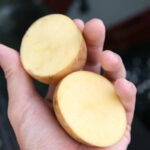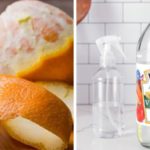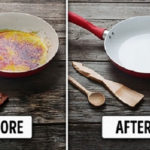On the occasion of Vietnamese Women’s Day on October 20, Thanh Nien had a chat with Dr. Vu Thi Tan – Lecturer at the Hanoi University of Science and Technology – who is considered an “idol” of housewives for her handy tips and tricks shared on her personal Facebook page, Tan Vu.
What’s even more special is that this female scientist always takes pride in the fact that her passion for chemistry stems from her mother’s humble kitchen. After working for three years at a leading steel company in the world, she returned to Vietnam and has since been an integral part of millions of Vietnamese families’ kitchens.
“I often receive calls from people I know only through social media, seeking my advice on various household matters. For instance, a mother once called me to consult about safely cleaning her sofa as her young child had made a mess. Another time, a woman called while shopping to ask my opinion on some plastic and glass containers she wanted to buy. And yet another time, someone asked me how to fry fish without it sticking to the stainless steel pan… If I have the time, I’m always happy to share my knowledge,” shared Dr. Tan.
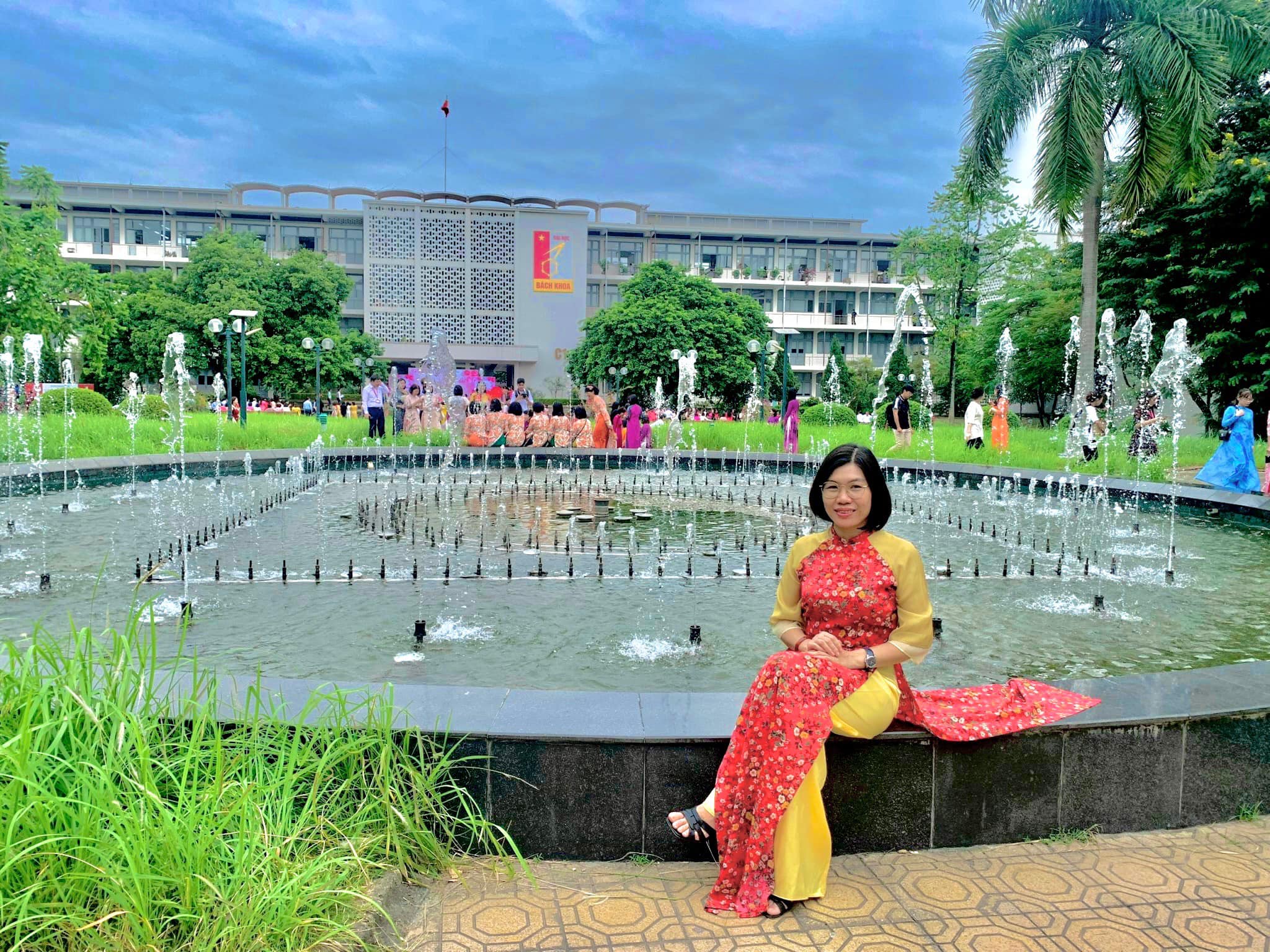
Dr. Vu Thi Tan
Photo: NVCC
How would you introduce yourself and your work in 2024, Dr. Tan?
Currently, I am a lecturer in Inorganic Technology and Plant Nutrition at the Hanoi University of Science and Technology. My expertise lies in inorganic materials, inorganic coatings, soda technology, and alkali compounds. In addition, I teach soft skills related to Innovation and Entrepreneurship to students. Alongside my teaching duties, I am also the Co-Founder of T-Clean, a green cleaning products brand. Recognizing that many people misuse household items, I take it upon myself to share my knowledge with the community through social media platforms.
How do you feel about being nicknamed the “Chemistry Doctor for Housewives”? You do this without expecting any monetary compensation, yet you have gained so much love and trust from the community.
I am truly delighted to have earned the community’s trust. Every day, I receive numerous messages seeking advice on choosing and using household items made of different materials. Sometimes, when I’m teaching or in a meeting, I can’t respond immediately, so I kindly ask for the community’s understanding.
Although this is a voluntary endeavor, I find great joy in sharing my knowledge. Giving is indeed rewarding, and I feel truly blessed that my expertise can help someone, even if it’s just a simple life hack.
Is it the wealth of your knowledge and the intriguing nature of chemistry that sets your tips apart from anything else “on Google”?
Knowledge from Google or chat GPT needs to be carefully curated and filtered. The information I share in my posts is based on my academic background and professional experience, acquired during my university years in Russia and my doctoral studies in Spain, as well as my time working for ArcelorMittal and teaching at the Hanoi University of Science and Technology.
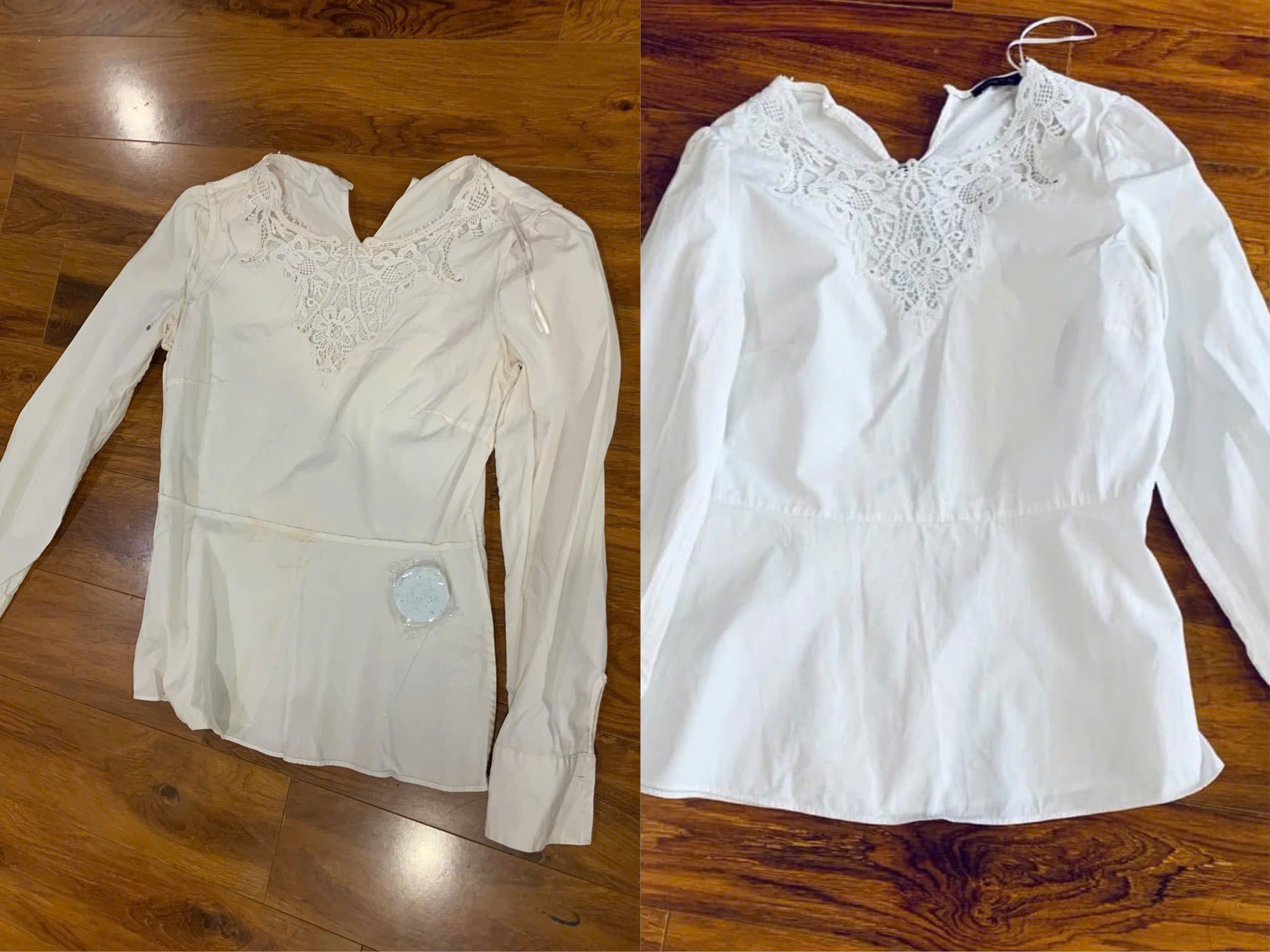
Dr. Tan shares a tip on how to restore discolored white clothes using laundry detergent pods
Photo: NVCC
Amidst the abundance of cheap and low-quality products on the market, what advice would you give to housewives when it comes to making wise choices for their homes and families?
In addition to my teaching duties at the university, I am also the Co-Founder of T-Clean. From my experience managing a manufacturing company, I can confidently say that cheap products are usually of inferior quality, often counterfeit, and of unknown origin. When it comes to inexpensive goods, the raw materials used are more likely to contain impurities that can be harmful to consumers’ health.
Personally, I opt for products with clear origins and reasonable prices, without compromising quality. For instance, I wouldn’t buy a pack of 10 paper towels (200 sheets per pack) for just 100,000 VND, which equates to 10,000 VND per pack… Paper products that ensure the safety of users go through multiple production processes: pulp sourcing, bleaching, additives, etc. Paper produced from wood pulp differs from recycled paper, which requires additional recycling, bleaching, and other treatment processes.
If these processes are not properly executed, the paper may retain chemical residues that are harmful to human health. Therefore, I refrain from purchasing excessively cheap paper products, even if they are advertised as “subsidized” or “discounted.”
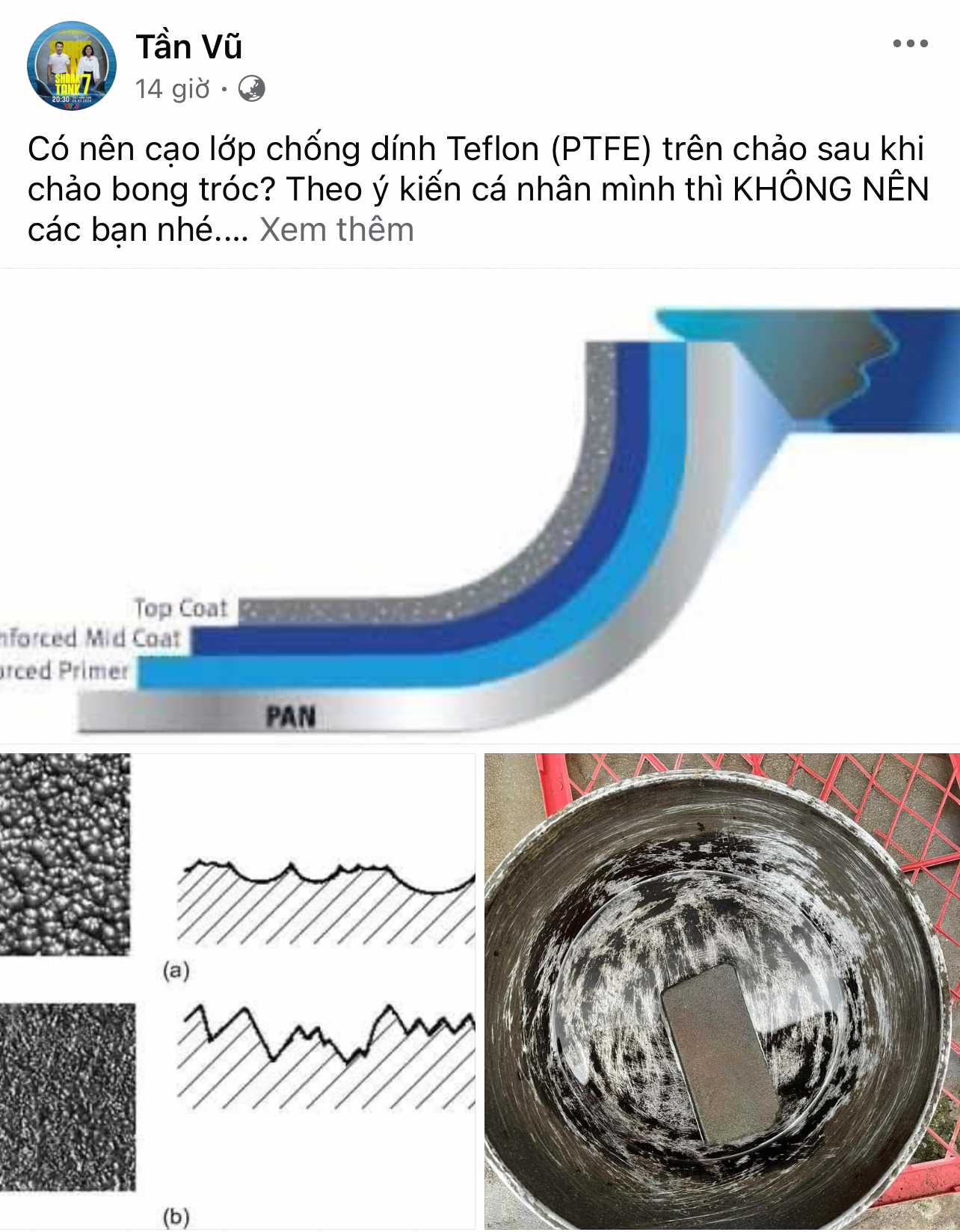
Dr. Tan advises housewives on whether or not to scrape off the non-stick coating from a pan for continued use
Photo: NVCC
Do you plan to move your content to a more official channel than just Facebook in the future?
Currently, I am collaborating pro bono with Doctor Network, an official channel of MCV, with the sole purpose of sharing my knowledge with the community.
What inspired you to start your own business, and why did you choose to venture into organic cleaning products?
Statistics show that only about 7-10% of the 8,588 chemical compounds in use are safe for human health. Many cleaning products in Vietnam contain strong chemicals that can be harmful to users. I recognized the importance of using safe and eco-friendly cleaning products. Thus, I decided to create T-Clean, a brand that utilizes natural ingredients, ensuring the well-being of both users and the items being cleaned.
With my experience working for ArcelorMittal, teaching about materials and cleaning compounds at the Hanoi University of Science and Technology, I was able to develop T-Clean, a range of cleaning products that serve as reliable helpers for housewives and even husbands in maintaining their bathrooms and kitchens.
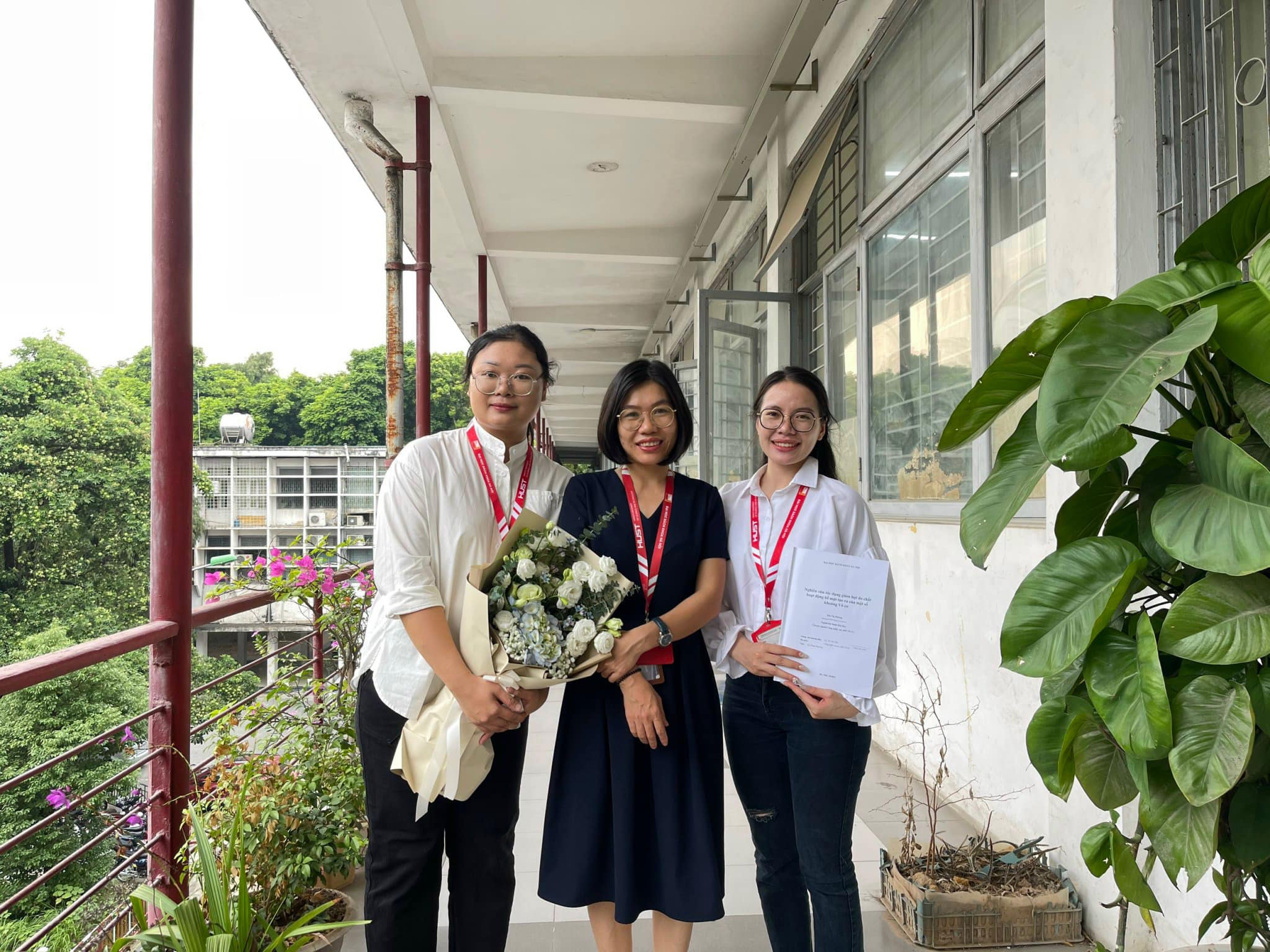
The female scientist is well-loved by her students
Photo: NVCC
As a woman who juggles research, teaching, entrepreneurship, and community knowledge sharing, do you ever feel overwhelmed by these responsibilities?
To be honest, sharing my knowledge on social media doesn’t take up too much of my time or energy. On the contrary, I feel grateful for the community’s trust. Whenever I receive messages or comments with questions, I try my best to explain and guide people towards simple yet effective solutions using readily available products.
Sometimes, I come across interesting phenomena in my daily life and share them immediately, which only takes a few minutes. For instance, while cooking breakfast, I noticed that a piece of beef displayed a rainbow-like color. If one didn’t know better, they might assume the meat was spoiled and hesitate to eat it. However, this phenomenon indicates rich iron content and the presence of various pigments. The combination of iron, fat, and moisture in the beef causes light refraction and scattering, resulting in the rainbow-like appearance.
As a military wife, I manage my household, care for my young child, teach at a university, run a research lab, and co-founded a Vietnamese brand. While this may seem like a lot, I always organize my tasks in a systematic manner, ensuring I get 7-8 hours of sleep, exercise regularly, and spend quality time with my child after work…
Could you share with us your journey of acquiring knowledge in chemistry and how you came to share your expertise in such a simple and relatable way in the kitchens of Vietnamese families?
I grew up in a poor family in Ha Nam. My father worked away from home, and my mother sold homemade rice wine in our village. My interest in chemistry began with helping my mother mix fermented rice with other ingredients to make wine. One could say that my passion for chemistry started in my mother’s kitchen. I excelled in chemistry and earned a full scholarship to study at the Hanoi University of Science and Technology. Later, I pursued my doctoral studies in Spain and graduated with excellent results.
Before returning to Vietnam, I worked for three years at ArcelorMittal in Spain, where I was involved in 17 inventions related to materials and surface treatments. My journey began in my mother’s humble kitchen, and now I find myself connected to the kitchens of millions of Vietnamese families. Chemistry explains many phenomena in our daily lives.
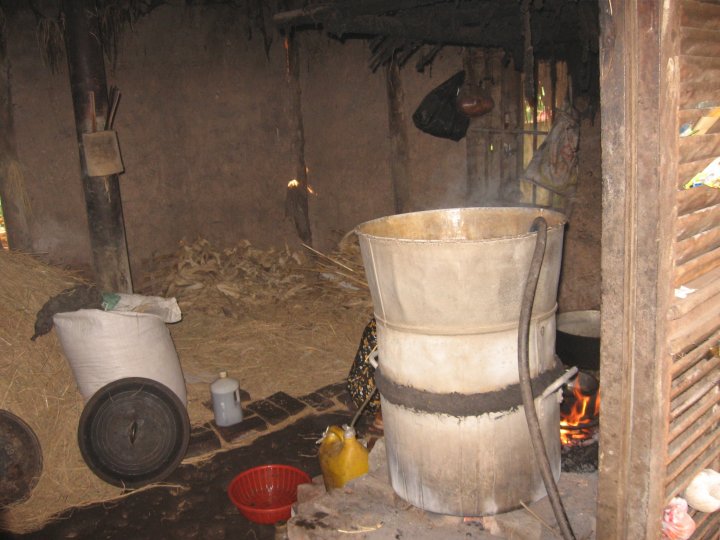
My mother’s wine-making kitchen, where my love for chemistry was born
Photo: NVCC
What lessons or words of encouragement would you like to share with our readers, especially women, based on your own experiences and your journey of “going out to come back”?
My lessons may not apply to all women, but I believe that giving our best in pursuing our goals, even if the outcomes fall short of our expectations, is essential. Making time for family and finding joy in what we have in the present will lead to a more fulfilling life.
Thank you for your time and insights, Dr. Tan.
The Magic of Potato Power: Polishing Your Car Windows to Perfection
The windshield is an essential component when driving, especially in adverse weather conditions such as rain, fog, or snow. It provides a clear view of the road ahead, ensuring safe and comfortable driving. A well-maintained windshield is crucial for optimal visibility and can make all the difference in your driving experience, keeping you and your passengers safe.
























